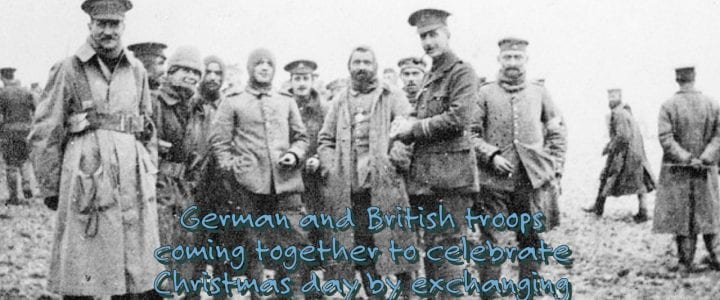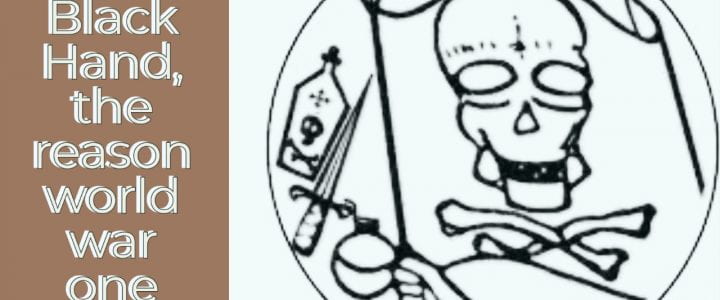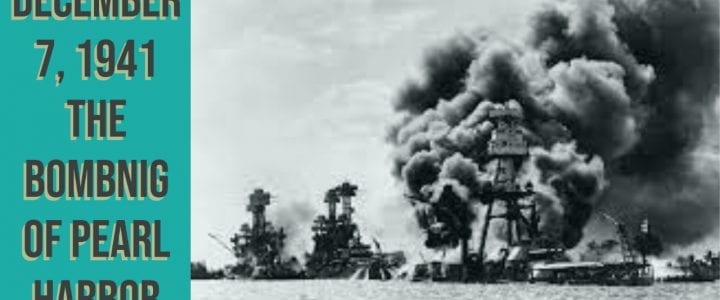In 1914, during World War l there was a day of peace. There was just a small moment where soldiers from the United Kingdom, French Republic, Austria-Hungary, German empire, and the Russian empire had a brief moment of a cease-fire. A one-day truce. This truce occurred along the entire western front trench lines. During this truce, these soldiers’ enemies or allies celebrated a holiday that has been around for centuries, Christmas.
Before the Truce
Before the “Calm within the storm”, World War l had been raging on for months and months. Countries had already been spreading and taking over wanted land. Thousands of soldiers and civilians had already lost their lives. By Christmas, soldiers, civilians, and governments were already sick of the fighting and had no idea that the war would go on for another whole 3 years. A truce for a few hours or so didn’t sound too bad.
Who agreed that they should have a truce?
Though the soldiers fighting and risking their lives didn’t think that a truce sounded too bad, some generals, countries, and entire governments thought otherwise. In, “Christmas Truce | Facts & History” it says, “The pause in fighting was not universally observed, nor had it been sanctioned by commanders on either side.” This means that the truce was between the soldiers and the soldiers had to take the blame for creating an unofficial cease-fire.
How did the truce begin?
Though the truce didn’t last very long, only around nine hours, Troops managed to find great ways to celebrate the holidays and come together. Starting late Christmas eve many troops along the western frontlines started to sing Christmas carols to each other. Some soldiers could even hear the sound of brass bands playing along. In “Christmas Truce of 1914 – HISTORY” it says, “German soldiers emerged from their trenches and approached the Allied lines across no-man’s-land, calling out “Merry Christmas” in their enemies’ native tongues.” After seeing that this was no trick, the allies climbed out of their trenches and joined the German troops.
What did they do throughout the truce?
During the nine-hour truce, some of the men exchanged gifts of cigarettes and plum puddings. There have been documented cases found of soldiers playing well-mannered games of soccer. Some British troops even lit small Christmas trees with candles and small handmade ornaments. Others exchanged letters and notes that they received from their loved ones back home. Other soldiers just shared their experiences with others, telling them about their life, where they first lived, and what they would want to be doing in the future after the war. Eventually, the troops gathered together and had a small Christmas dinner consisting of their rations and other foods.
How and when did it all come to an end?
Eventually, all things good must come to an end. Finally, during Christmas night soldiers placed candles and trees around the trenches and continued to sing Christmas carols. Then, later the troops all slowly went to bed. In the following few days after the Christmas truce, violence began to erupt once again across the western front. Though in some areas truce continued all the way to New Year’s Day. Soon after the truce had ended both German and British generals quickly took certain steps to prevent any other truces during the ongoing war.
Conclusion
In the end, it seems that a holiday such as Christmas or new years eve can put a pause to an entire war. Holidays can bring us together and give us a chance to communicate, teach, learn, from others. In World War l, we saw a perfect example of that. Troops came together amid war. They celebrated the holidays, sang carols, and feasted together, they shared gifts and played games. Enemies who were once told to slaughter each other came together and for a brief moment in that war, there was peace. The Christmas spirit brought peace within the Great War.



